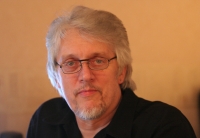 Time to get this blog active again! The research hasn’t been dormant since the last entry but it hasn’t been very systematic either – gathering sources, making notes but not really getting engaged with any debate since my visit to Newcastle.
Time to get this blog active again! The research hasn’t been dormant since the last entry but it hasn’t been very systematic either – gathering sources, making notes but not really getting engaged with any debate since my visit to Newcastle.However, I did receive confirmation that the process of undertaking a PGCE – as a requirement for registration of the research at UCE – has been successfully completed. Part of that process was an initial literature review. I’m going to set it out here in this blog but in instalments and with hyperlinks and tags – partly to remind me of what I’ve covered so far and, possibly, to stimulate some discussion – who knows?
So here is the introductory section, which seeks to (pardon the cliché) ‘map the terrain’.
... / ...
My research addresses practices of ‘amateur’ music performance and consumption within the network of folk clubs and music and song sessions across the UK. It identifies discourses inhabited by organisers, performers and audiences and studies their motivations to share folk music in an informal setting.
In tackling these issues, this study addresses a concern raised by Brocken on the contemporary folk scene in Britain in the wake of (at least) two folk revivals.
This folk discourse has become caught up in a consolidation and a permanence that has relations only to, or with, the images created at its own inception. … In what was originally a space for absence of rules, a rejection of music rules, the folk club has now become caught up in the revival’s own rituals. … [It] has now become the tradition, only resembling itself.
(Brocken 2003:124)
While reaffirming this self-contained, self-referential aspect of folk clubs, my research considers evidence of tension between the largely unregulated practices of amateur performance and encroaching institutional, political and cultural contexts in which they operate.
The activity of reviewing scholarly literature on folk music reveals an irony in defining the object of study as ‘music of the people' (BBC, online) – in a literal sense, ‘popular’ music. A clear paradigmatic distinction exists between an extensive body of research on ‘folk’ music as a traditional or vernacular form (e.g. Pickering 1982, Bohlman 1988, Nettl 1990, Russell 1997) and research since the 1980s into ‘popular’ music as a product of a cultural industry (e.g. Frith 1988, 2004a, 2004b, 2004c, Toynbee 2000, Wall 2003). Both approaches agree on the notion of music as a form of cultural expression but much of the history of research into folk has veered towards anthropology and the study of ‘folklore’ while the concept of ‘culture’ in studies of ‘popular’ music is often aligned with post-Marxist conceptions, following a trajectory established by Adorno’s (1941, 1991) interests in agencies and practice of cultural production of music as a commodity (see Witkin 1998 and 2002).
Hesmondhalgh and Negus identify 1981 as the year that popular music ‘began to emerge as a recognisable field of academic study…with the establishment of the International Association for the Study of Popular Music and the launch of the academic journal Popular Music' (2002:3). While folk music’s place as a style and influence is acknowledged in some studies of the ‘popular’ (see for example Kassabian, 1999:116-7, Bennett 2001:24, Wall 2003:30-31), a cursory browse through the journal suggests that rock, jazz, hip hop, punk and, in particular, blues are more likely to attract scholarly attention as ‘popular’ forms of music.
1. The New York Times, 7th July 1971, credits Louis Armstrong with the infamous statement, “All music is folk music. I ain't never heard a horse sing a song.”
literature review folk music amateur music folk clubs
music sessions folk revival folk culture popular music Michael Brocken Theodor Adorno IASPM Popular Music journal

No comments:
Post a Comment